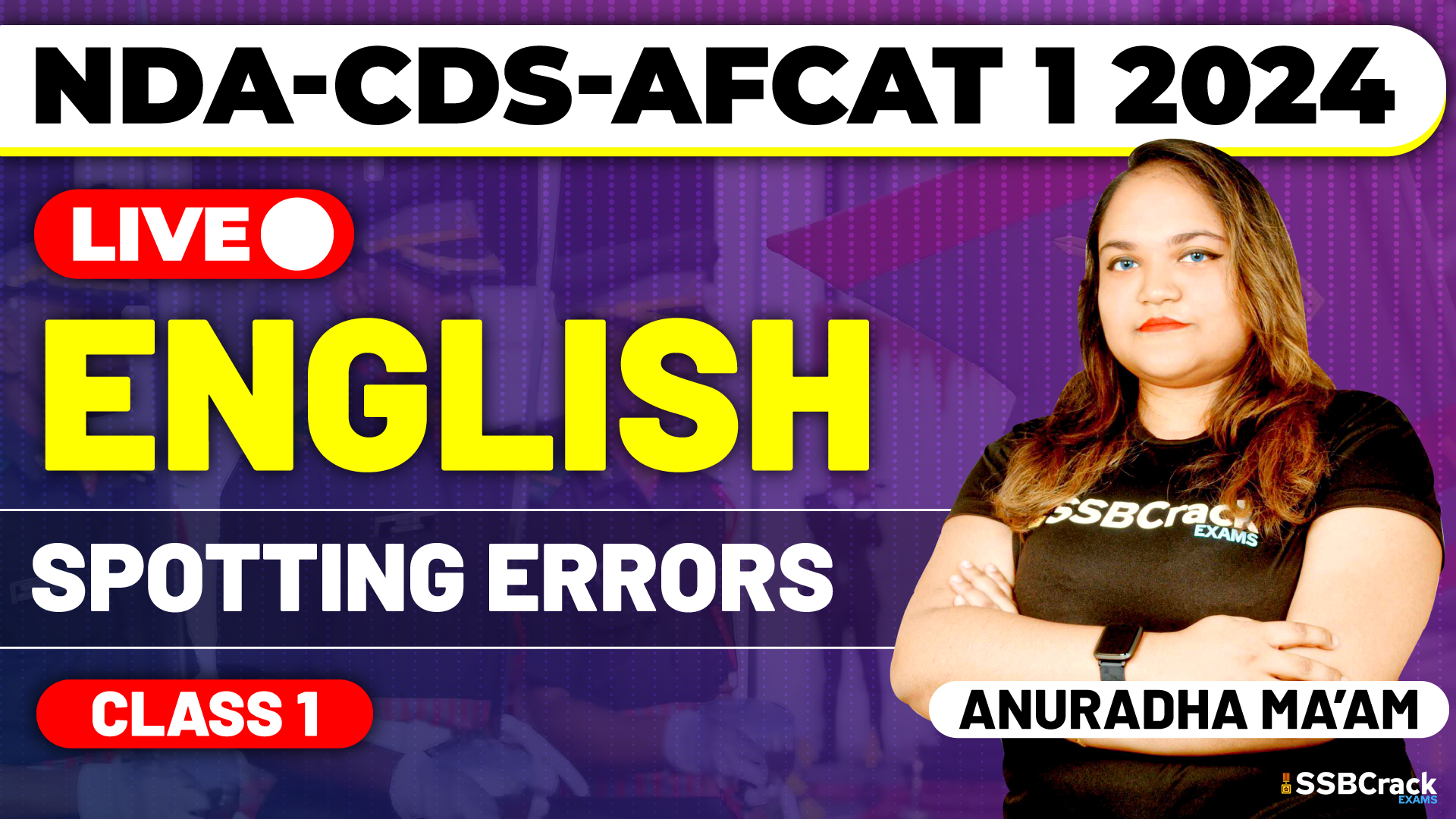In the realm of competitive exams for defense services like the National Defence Academy (NDA), Combined Defence Services (CDS), and Air Force Common Admission Test (AFCAT), the English language holds a pivotal position. Among the various sections designed to evaluate candidates, the “Spotting Errors” section is particularly crucial. This segment tests not only the grammatical proficiency of aspirants but also their ability to communicate accurately, an essential trait for individuals aiming to join the armed forces.
Importance of Spotting Errors:
- Communication Skills in Focus: Effective communication is vital for officers in the armed forces. The ability to spot errors in written communication reflects a candidate’s understanding of grammar, syntax, and language structure. This skill is invaluable, as officers often need to convey orders, information, and instructions precisely.
- Precision and Attention to Detail: Spotting errors requires a keen eye for detail and a meticulous approach. Military operations demand precision, and officers must be able to analyze information critically. The errors presented in these exams may be subtle, testing candidates’ ability to catch nuances and make accurate assessments.
- Adaptability and Quick Thinking: In defense scenarios, officers often face rapidly evolving situations where quick decision-making is imperative. Spotting errors in real-time communication or written documents requires candidates to think on their feet. This skill is essential for adapting to changing circumstances and making informed choices under pressure.
- Maintaining Operational Integrity: Precision in language is not just about effective communication but also about maintaining operational integrity. Miscommunication due to grammatical errors can lead to misunderstandings, potentially compromising the success of a mission. The ability to spot errors ensures that officers can maintain clarity in their orders and reports.
- Command of English Language: A strong command of the English language is a reflection of a candidate’s education and overall cognitive abilities. Officers are often required to interact with international counterparts, and a solid grasp of English enhances their ability to collaborate on a global scale. The spotting errors section evaluates this proficiency in a competitive setting.
Tips for Success:
- Brush up on Grammar Rules: Candidates should revisit fundamental grammar rules, including tenses, subject-verb agreement, and sentence structure. A thorough understanding of these principles is essential for accurately identifying errors.
- Practice Regularly: Regular practice is key to mastering the art of spotting errors. Solving previous years’ question papers and mock tests can help candidates familiarize themselves with the types of errors commonly tested in these exams.
- Read Widely: Reading diverse materials exposes candidates to various writing styles and language structures. This exposure aids in developing an intuitive sense for spotting errors.
- Time Management: In exams like NDA, CDS, and AFCAT, time management is crucial. Candidates should practice solving spotting error questions within the stipulated time to enhance their efficiency during the actual exam.
Conclusion:
Spotting errors in the English section of NDA, CDS, and AFCAT exams is more than just an evaluation of grammar skills. It’s a reflection of a candidate’s ability to communicate accurately, think critically, and adapt swiftly – qualities indispensable for success in the defense services. Aspirants should approach this section with dedication, recognizing its importance in shaping their future roles as effective and efficient officers in the armed forces.







